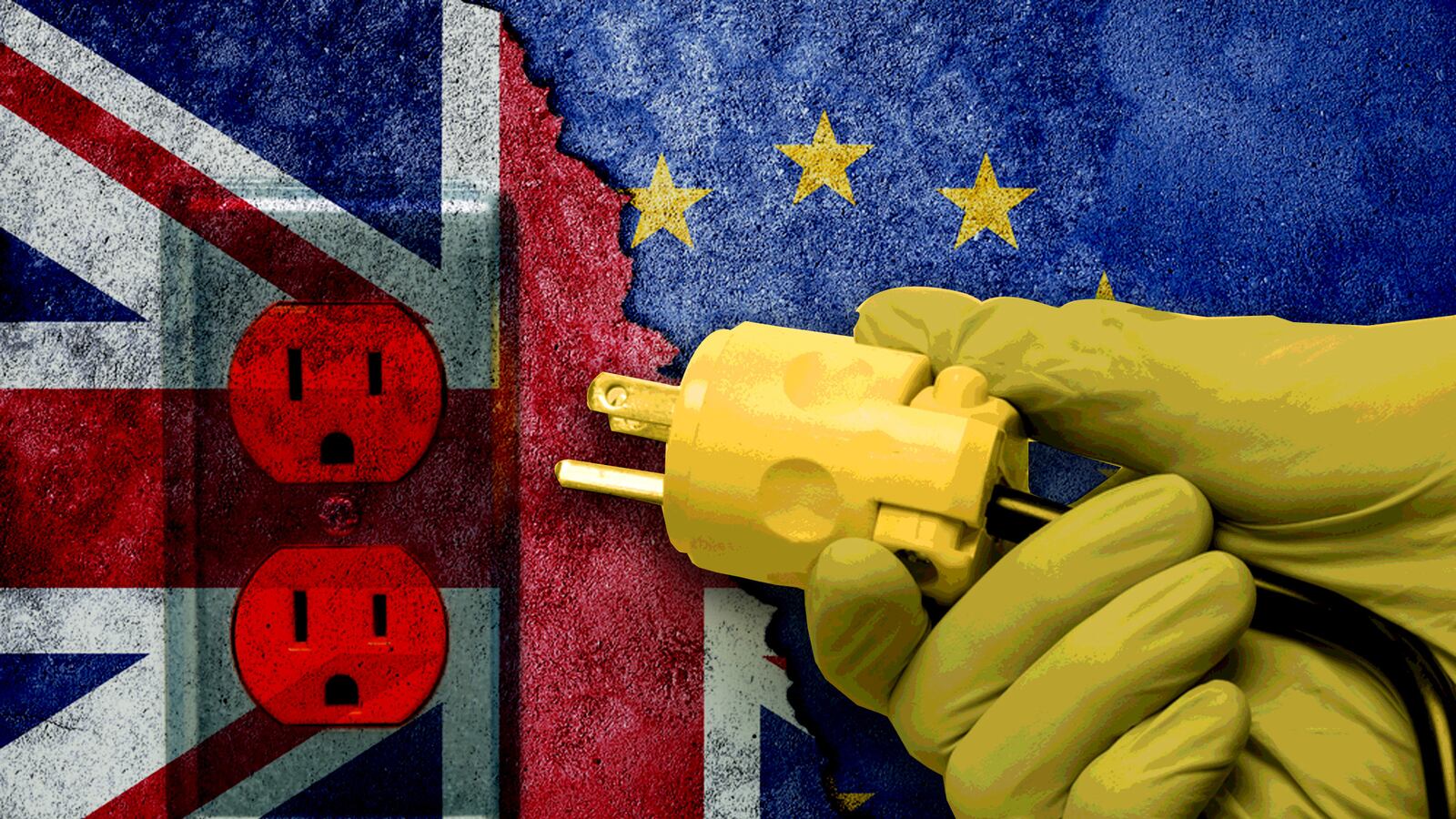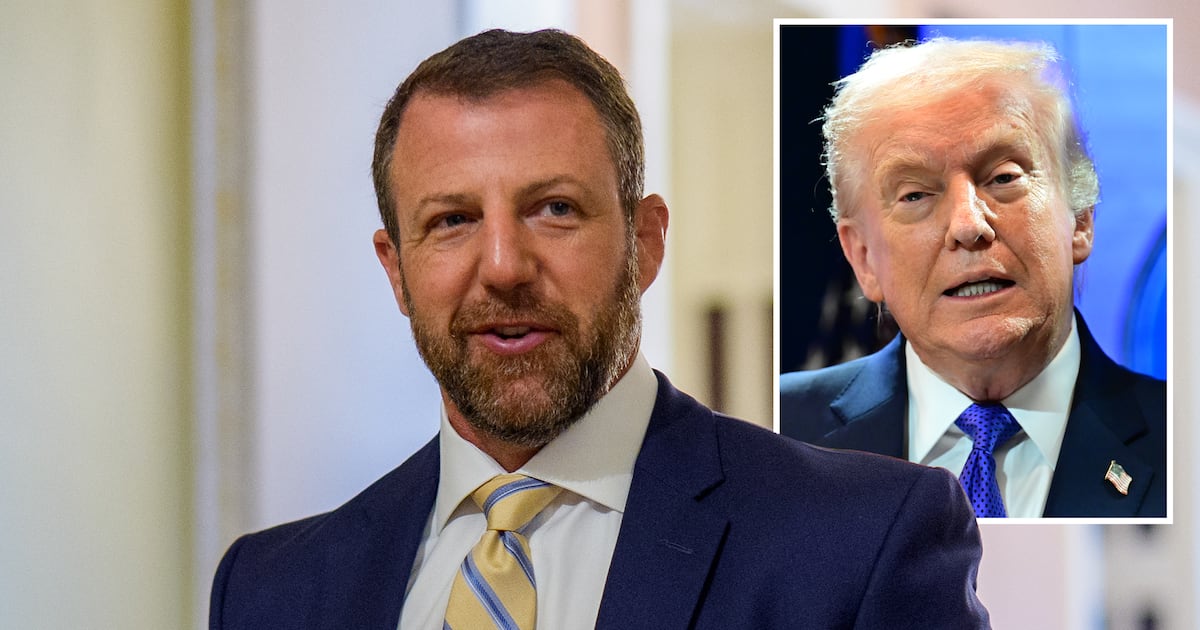LONDON—The trigger has been pulled. The United Kingdom has officially notified the European Union of its intention to leave.
Most liberals who voted for the U.K. to remain–that’s 48 percent of the country, including me–were shocked, saddened, dismayed and frustrated at the referendum result last June. That the destiny of our country could be decided in such a significant way by such a slim margin continues to rile my fellow Remainers till this day.
Our frustration at being unable to do anything about something we care so deeply about, and the desire born from that frustration to resist it, is precluding many of us from being able to plan for the future. So unexpected was the result to almost half of Britain–and to most Americans–that most of us are still stuck in the first two stages of grief: denial or anger.
Clinging to the hopes of our past, we are wishing away reality in vain as it stares at us directly in the face. But it is high time we Remainers accepted the cold hard truth. No matter how much we may detest the idea of it, Brexit is now inevitable.
There is no turning the clock back. Like lovers in a long term relationship that has turned abusive, something is broken and can never be fixed again. Trying to fix it now would be akin to applying a band aid to a festering wound. So grief stricken have we been that we have allowed the very people in the country who caused our pain to set the agenda for the future.
And therein lies the danger.
If Remainers cannot move beyond the mourning, the name calling and the shaming, to articulate and develop a vision for the future of Britain, we cede all ground in defining that future to the Brexiteers, who will carve out a country in their image.
There are many things Prime Minister Theresa May’s Conservative government could get wrong in this process. That we will not know until we first decide what "success" looks like. And we cannot define success without knowing what to aim for. Failure to do so not only hands the reins to Brexiteers, it is in fact existentially dangerous for the United Kingdom.
Scotland voted to remain in the EU and now threatens to break away from the U.K. If Scotland were to succeed, Northern Ireland could try to follow suit.
Only those who similarly voted to remain have the credibility to convince the regions to stay together. But if we English Remainers continue in our anger and denial, without charting a constructive path forward, there will be no blueprint to sell to our fellow Scottish and Northern Irish compatriots.
An already powerful executive, fused in Britain with our legislature, could embark on a huge power grab from Brussels while Remainers are busy protesting a year old referendum result in the streets. Without a post-Brexit vision, there is nothing against which to hold the Conservative government to account as they repatriate these significant powers. And without this vision, there is no grand compromise that could be used to heal a bitterly divided nation that is split almost down the middle while choosing which way to pivot at this historic junction.
Enough with the anger. Enough with the denial and grief. Let us boldly begin a conversation about what we do next and how we heal the nation. Suggestions are merely that, and it can only enrich us to think them aloud.
Remainers must develop a liberal post-Brexit vision for the United Kingdom.
A liberal post-Brexit Britain should be an open, outward looking, global facing, immigrant and investment friendly country.
Globally, a vision for a British future outside of the European Union could begin by forging exclusive relationships with the English speaking countries of the world. The U.K. already has unparalleled security and counter-terrorism cooperation with what are known as the "Five eyes nations": the United States, Canada, Australia, New Zealand and the United Kingdom. Add the Republic of Ireland to this list and the beginnings of a new liberal trade and relaxed free-movement bloc become apparent.
Such a vision would allay the immigration fears of Brexiteers–because the languages and cultures of these countries are close enough—while also placating Remainers, who are keen not to see "fortress Britain," or "little England" emerge after Brexit.
The success of this new bloc could learn from all the mistakes of Europe gone by: keep bureaucracy at bay, do not set overly ambitions goals, do not expand too fast, keep the rules to a minimum, and keep the people on side. Of course, both sides may feel disappointed by some elements of this compact, but then compromise is called an art for good reason.
At home, a vision for a revived social contract is also needed.
The rights of EU citizens already in the United Kingdom must be protected. A mass exodus would not only harm our economy, it would be chaotic.
As well as a sense of losing control, much of the Brexit vote did come down to immigration. Angela Merkel’s fateful–and short-sighted–decision to adopt an "open door" policy the summer of the Brexit referendum played no small part in motivating Brexiteers to vote Leave.
The fear of overwhelmingly Muslim newcomers coupled with the poor domestic integration of Britain’s existing Muslims was a powerful specter pushing people to "take back control." But it didn’t have to be like this.
If relations with existing British Muslim communities weren’t so bad, if there hadn’t been unprecedented acts of jihadist terrorism across Europe, and if thousands of European citizens hadn’t travelled to join ISIS, the mutual distrust and anger that so divided our communities could have been avoided.
Alas, we had forgotten, neglected and taken for granted our social contract. Relativism stood where consensus once dwelled. Ideologues filled the void of certainty and as a result, our communities began tearing themselves apart.
A liberal vision for a post-Brexit Britain must rediscover, restate and revitalize a new social contract for all those citizens who are already here, including my fellow Muslims.
In hindsight, how multicultural relativism led to tolerating Islamist theocrats in our midst should be clear for us all to see. The straight line from liberal post-modernism to post-truth and the alt-right should by now also be self-evident. As should the symbiosis that exists between Islamist dogma, far-right agitation, and hard-left violence.
Only a consistent application of secular, democratic, and universal classically liberal human rights values can bring our divided communities back to a neutral and mutually respectful place. For these reasons, and to heal our divided communities, post-Brexit Britain must rediscover its identity in our enlightenment values.
With this bold vision for a confident British liberal identity at home, and a global, outward facing Britain that remains open to the world, Remainers may be able to seize back the initiative from those who may wish to pull up the drawbridge and dig in their trenches. We may also be able to hold the country together.
But none of this is possible if we do not put aside our personal grief and do what is right for the nation. For to get Brexit wrong would be disastrous not only for Britain and Europe, but potentially for the world. Though to make the best of a regretful decision–to get it right in other words–could usher in a new era, a new Pact-Brittanica for a new world.






